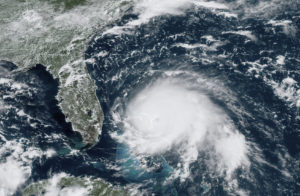
Don’t let January’s rule changes cause you confusion!
There is always some confusion when new rules affecting the calculation of deadlines come into effect, as happened on the January 1, 2019. How do you calculate deadlines that straddle the gap? Someone reached out directly to us to ask the question, so here’s our answer for posterity.
The hypothetical is this: Appellant files an initial brief on Friday, December 28, 2018. When is the answer brief due? Under the version of the rules in effect on December 28, 2018, an Answer Brief the rule stated:
Unless otherwise required, the answer brief shall be served within 20 days after service of the initial brief.
See former Rule 9.210(f). In addition, former rule 2.514(b) allowed an additional five days added to any deadline calculated based on service by e-mail:
(b) Additional Time after Service by Mail or E-mail. When a party may or must act within a specified time after service and service is made by mail or e-mail, 5 days are added after the period that would otherwise expire under subdivision (a).
So under the old rules, the 20th day is Thursday, January 17, 2019. Add five additional days for service by e-mail, and the deadline is Tuesday, January 22, 2019.
New Rules, New Math
The new rules change the calculations. The new version of Rule 9.210(f) states:
Unless otherwise required, the answer brief shall be served within 2030 days after service of the initial brief…
And the new version of Rule 2.514(b) eliminates extra days for service by e-mail, now reading:
(b) Additional Time after Service by Mail. When a party may or must act within a specified time after service and service is made by mail, 5 days are added after the period that would otherwise expire under subdivision (a).
Finally, the new version of Rule 2.514 gives you a break on when to start counting if someone served you something on the eve of a weekend or holiday. Where before, you would “exclude the day of the event that triggers the period” and start counting on the next calendar date, the new rule states that you “begin counting from the next day that is not a Saturday, Sunday, or legal holiday.” See New Rule 2.514(a)(1).
The net result is that instead of counting 20 days (which could be more, if the last day fell on a weekend) and then adding an additional 5 days for mailing (which could be more, if the last day fell on a weekend), you now count a straight 30 days, starting from the next business day. If the last day falls on a weekend or holiday, you then role to the next day that is not a Saturday, Sunday, or holiday. If the new rule applies to the brief filed December 28, 2018, you start counting from Monday December 31, 2018 (after confirming it is not a holiday; it is not). From there, the 30th day would be Tuesday, January 29, 2019.
Do the New Rules Change the Due Date?
So is the deadline the 22nd or the 29th? It’s great that the new rules tend to net attorneys more total time, but what happens this month? Good question.
There is voluminous case law about whether a newly-enacted statute should be applied retroactively.
In order for a law to apply retroactively, the court must determine (1) if there is evidence that the legislature clearly intended for the law to be applied retroactively, and (2) if so, whether the retrospective application of that law is constitutionally permissible. See Pondella Hall for Hire v. Lamar, 866 So.2d 719, 722 (Fla. 5th DCA 2004). In the absence of clear legislative intent that a law apply retroactively, the general rule is that procedural statutes apply retroactively and substantive statutes apply prospectively.
Envtl. Confederation of Sw. Florida, Inc. v. State, 886 So. 2d 1013, 1017 (Fla. 1st DCA 2004). But, this is not a statute enacted by the legislature, but rather, a rule of procedure promulgated by the Supreme Court.
Moreover even when the new law is stated by the Supreme Court, the analysis of retroactivity has constitutional dimensions:
the essential considerations in determining whether a new rule of law should be applied retroactively are essentially three: (a) the purpose to be served by the new rule; (b) the extent of reliance on the old rule; and (c) the effect on the administration of justice of a retroactive application of the new rule.
Witt v. State, 387 So. 2d 922, 926 (Fla. 1980).
But this rule generally comes into play when the Florida Supreme Court makes a ruling that itself has constitutional dimensions. It does not speak to rule changes.
Here, we are dealing with changes to rules of procedure and not statutory pronouncements or decisional changes in the law. The answer therefore lies in a different line of cases. Since the 1800s, the Florida Supreme Court has held that its rules of court are prospective in nature:
Unless otherwise specifically provided, our court rules are prospective only in effect. Poyntz v. Reynolds, 37 Fla. 533, 19 So. 649 (1896).
Tucker v. State, 357 So. 2d 719, 721 (Fla. 1978).
To avoid litigation in some criminal cases, the Supreme Court has sometimes expressed this rule of interpretation outright when making a rule change. For example, in amending the rules regarding post-conviction collateral relief, the court expressly stated the effective date and then stated, in the rule itself, “Motions pending on that date are governed by the version of this rule in effect immediately prior to that date.”
In re Amendments to Florida Rules of Judicial Admin.; Florida Rules of Criminal Procedure; and Florida Rules of Appellate Procedure–Capital Postconviction Rules, 148 So. 3d 1171, 1180 (Fla. 2014). However, precedent dictates that the rules apply prospectively only unless the Court expressly states otherwise. Poyntz v. Reynolds, 37 Fla. 533, 19 So. 649 (1896); Tucker v. State, 357 So. 2d 719, 721 (Fla. 1978).
Apply the Rules in Effect on the Triggering Date
All of this is a long-winded analysis to come to a very logical conclusion: calculate deadlines based upon the rules in effect on the date of the event that triggers the calculation. So in our hypothetical, because the deadline for service of an answer brief is based on the date of service of the initial brief, and because the initial brief was served last year when the old rules were in effect, calculate the deadline using the old rules. The answer brief is due Thursday, January 17, 2019.
Don’t miss our other entries on the rule changes, including our overview, and our discussion of new types of appeals authorized by the new rules. Let us help you with your appeal! 813-778-5161.




